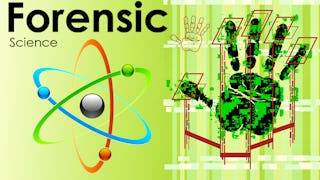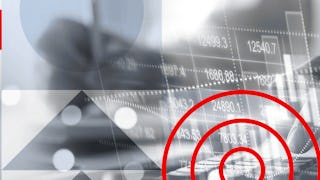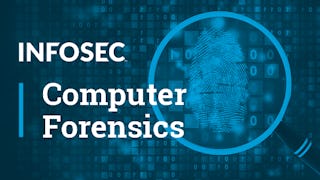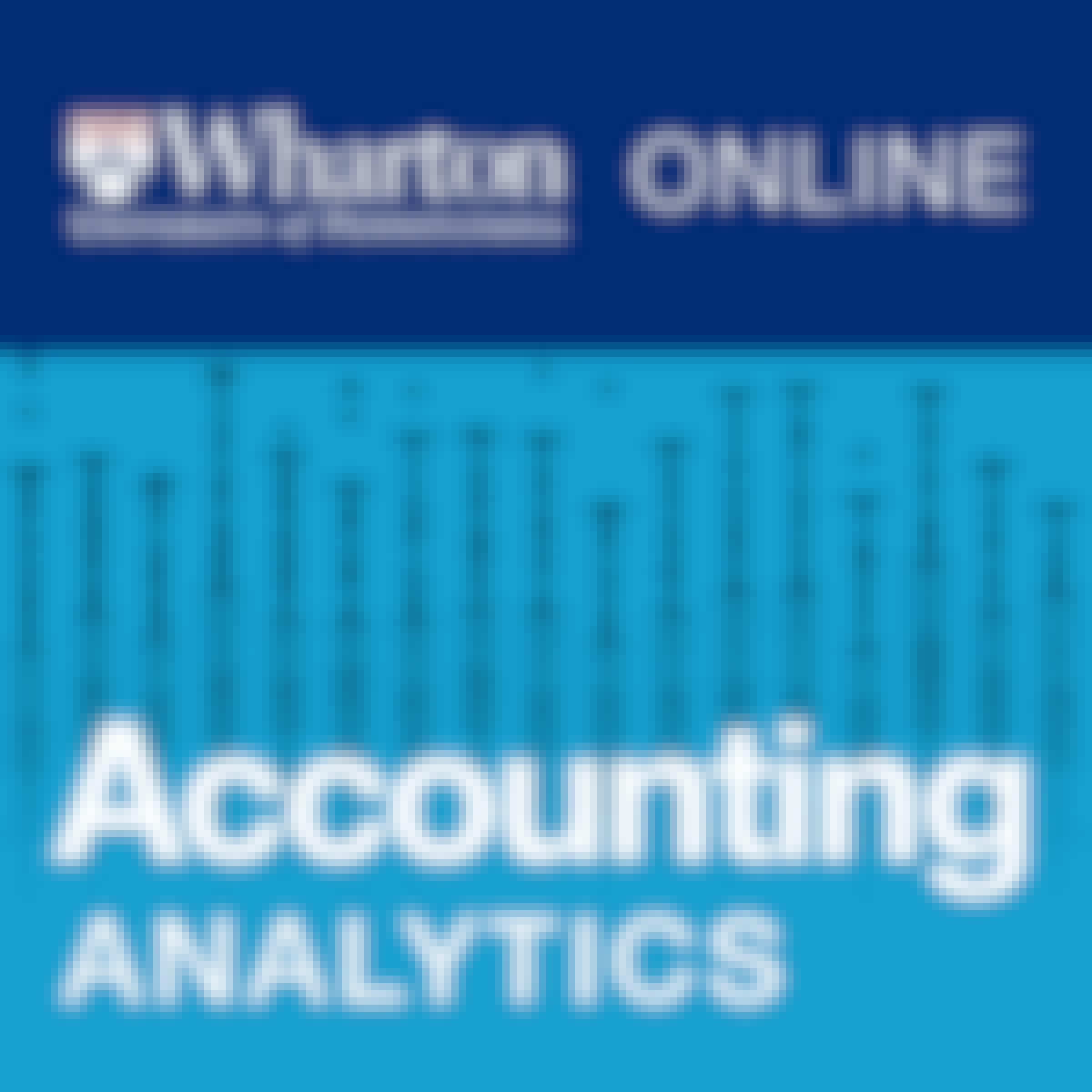Filter by
SubjectRequired
LanguageRequired
The language used throughout the course, in both instruction and assessments.
Learning ProductRequired
LevelRequired
DurationRequired
SkillsRequired
SubtitlesRequired
EducatorRequired
Explore the Forensic Accounting Course Catalog
 Status: Preview
Status: PreviewWest Virginia University
Skills you'll gain: Internal Controls, Financial Controls, Threat Detection, Internal Auditing, Anomaly Detection, Financial Auditing, Security Awareness, Financial Data, Investigation, Cyber Operations, Financial Statement Analysis, Business Ethics, Accounting, Data Analysis Software
 Status: Preview
Status: PreviewNanyang Technological University, Singapore
Skills you'll gain: Criminal Investigation and Forensics, Chemistry, Investigation, Scientific Methods, Pharmacology, Laboratory Testing, Physics, Laboratory Equipment, Data Collection, Estimation, Biology
 Status: Free Trial
Status: Free TrialTally Education and Distribution Services Private Limited
Skills you'll gain: Accounts Payable and Receivable, Accounting, General Accounting, Ledgers (Accounting), Inventory Management System, Accounting Software, Accounting Systems, Tax Management, Tax Compliance, Standard Accounting Practices, Financial Reporting, Bookkeeping, Inventory Control, Accounting and Finance Software, Order Processing, Sales Tax, Data Import/Export, Tax, Finance, Banking
 Status: Free Trial
Status: Free TrialIESE Business School
Skills you'll gain: Financial Reporting, Financial Statement Analysis, Financial Statements, Financial Accounting, Income Statement, Balance Sheet, Cash Flows, Accounting, Accrual Accounting, Cash Management, Ledgers (Accounting)

Coursera Project Network
Skills you'll gain: Balance Sheet, Excel Formulas, Microsoft Excel, Data Entry, Financial Accounting, Financial Statements, Income Statement, Financial Statement Analysis, Ledgers (Accounting), Reconciliation, Financial Reporting, Bookkeeping, General Ledger, Profit and Loss (P&L) Management, Accounting and Finance Software
 Status: Free Trial
Status: Free TrialInfosec
Skills you'll gain: File Systems, Microsoft Windows, Cybersecurity, Operating Systems, Information Systems Security, Data Security, Data Validation, Computer Systems, Network Security, Record Keeping, Verification And Validation, Data Storage, TCP/IP, Data Integrity, Network Protocols, Data Analysis Software, User Accounts, USB, System Configuration, Data Structures
What brings you to Coursera today?
 Status: Preview
Status: PreviewUniversity of Lausanne
Skills you'll gain: Balance Sheet, Financial Statements, Financial Statement Analysis, Income Statement, Bookkeeping, Cash Management, Financial Accounting, Cash Flows, Accrual Accounting, Financial Analysis, Accounting, General Accounting, Accounts Payable and Receivable, Reconciliation, Operational Efficiency
 Status: Preview
Status: PreviewUniversity of Illinois Urbana-Champaign
Skills you'll gain: Financial Auditing, Auditing, Auditors Report, Generally Accepted Auditing Standards, External Auditing, Audit Planning, Certified Public Accountant, Quality Assessment, Financial Reporting, Internal Controls, Financial Statements, Ethical Standards And Conduct, Risk Analysis, Business Ethics, Market Dynamics
 Status: Free Trial
Status: Free TrialUniversity of Pennsylvania
Skills you'll gain: Finance, Capital Budgeting, Working Capital, Financial Statement Analysis, Return On Investment, Accrual Accounting, Financial Reporting, Financial Accounting, Financial Statements, Cash Flows, Balance Sheet, Accounting, Financial Modeling, Generally Accepted Accounting Principles (GAAP), Financial Planning, Income Statement, Bookkeeping, Accounts Receivable, Corporate Finance, Financial Analysis
 Status: Free Trial
Status: Free TrialUniversity of Pennsylvania
Skills you'll gain: Financial Statement Analysis, Financial Analysis, Financial Accounting, Advanced Analytics, Accounting, Analytics, Predictive Analytics, Financial Forecasting, Financial Modeling, Revenue Recognition, Business Analytics, Auditing, Business Metrics, Performance Analysis, Finance, Anomaly Detection, Key Performance Indicators (KPIs)
 Status: Free Trial
Status: Free TrialSkills you'll gain: Incident Response, Computer Security Incident Management, Incident Management, Intrusion Detection and Prevention, Cybersecurity, Security Management, Threat Detection, Security Information and Event Management (SIEM), Cyber Attacks, Cyber Threat Hunting, Event Monitoring, Data Analysis Software, Technical Communication, Data Integrity, Technical Documentation
 Status: Free Trial
Status: Free TrialIESE Business School
Skills you'll gain: Financial Reporting, Financial Statement Analysis, Corporate Finance, Financial Statements, Financial Accounting, Income Statement, Financial Market, Capital Budgeting, Cash Flows, Accounting, Financial Modeling, Operational Analysis, Financial Analysis, Financial Forecasting, Balance Sheet, Accrual Accounting, Business Valuation, Financial Management, Investments, Equities
Forensic Accounting learners also search
In summary, here are 10 of our most popular forensic accounting courses
- Forensic Accounting and Fraud Examination: West Virginia University
- Introduction to Forensic Science: Nanyang Technological University, Singapore
- Tally Bookkeeper: Tally Education and Distribution Services Private Limited
- Accounting: Principles of Financial Accounting: IESE Business School
- Create a Financial Statement using Microsoft Excel: Coursera Project Network
- Computer Forensics: Infosec
- Accounting 1: University of Lausanne
- Auditing I: Conceptual Foundations of Auditing: University of Illinois Urbana-Champaign
- Introduction to Finance and Accounting: University of Pennsylvania
- Accounting Analytics: University of Pennsylvania










